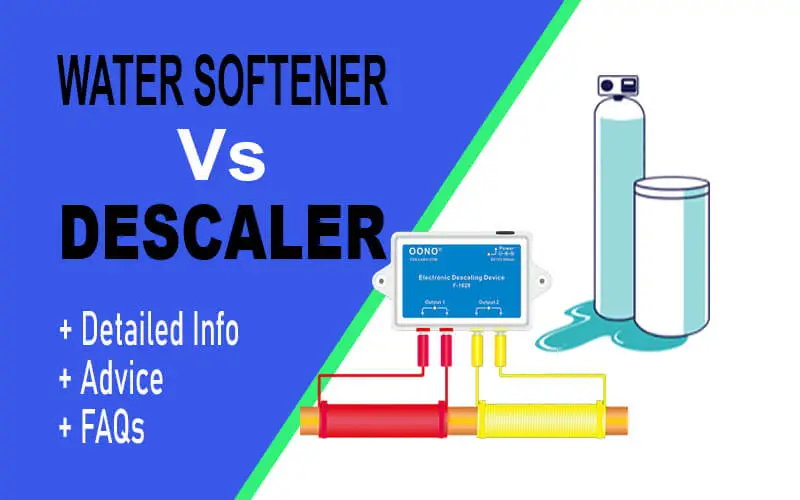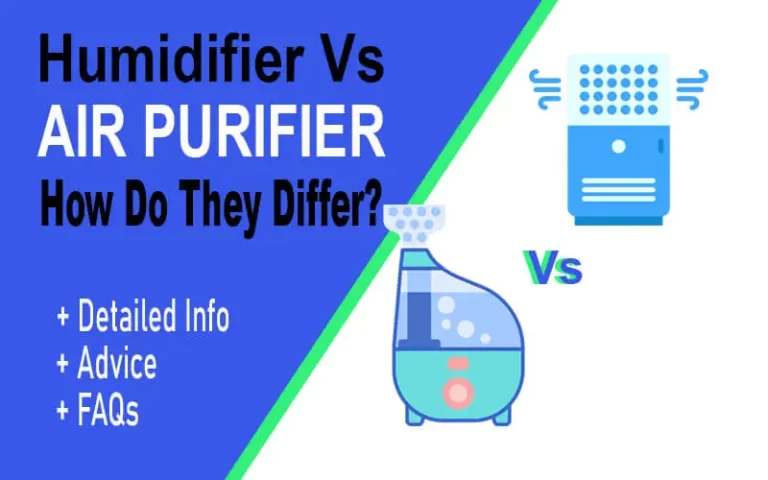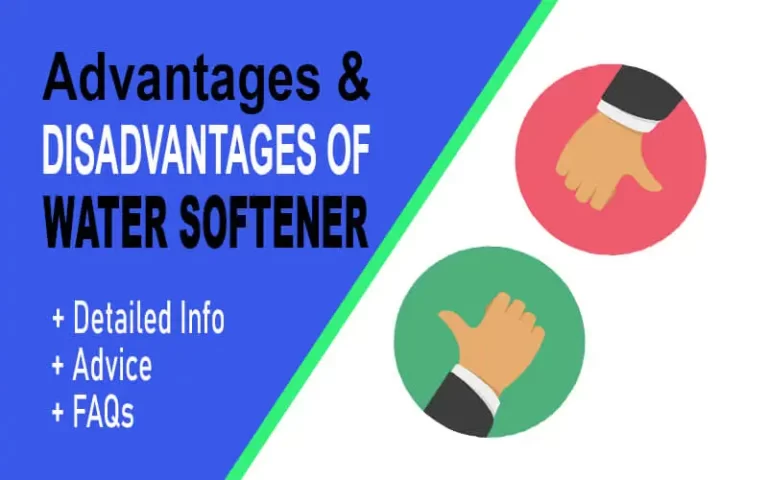Water Softener vs Descaler [+Differences] +Guide 2023
The average person spends around $1,200 per year on the water, so it’s essential to ensure that your water quality is up to par. One method for doing this is by utilizing a Water Softener vs Descaler.
However, which one is appropriate for you? Both systems are designed to reduce the hardness of water, but they work in different ways. Water softeners and Descaler both have their pros and cons, so it’s essential to do your research before making a purchase.
Water that has accumulated minerals during the water cycle is referred to as hard water. There is a study which indicates that approximately 85% of the population of the United States uses hard water for cooking, cleaning, and bathing. Additionally, hard water damages home appliances as well as negatively impacts the lathering ability of soap and dries out hair and skin. It is common for bathrooms and kitchens to have filmy soap scum caused by hard water.
Water Softener vs Descaler
What are the Descalers?
Descaler are frameworks that eliminate a covering, layer, or hull (scales) from a surface. They are normally utilized on metal surfaces and on different surfaces like glass or earthenware. Descaling is necessary for many industries, as it helps keep equipment and surfaces clean and free of harmful build-ups.
There are various sorts of Descaler available, each with its benefits and inconveniences. Choosing a suitable Descaler for a particular application can be a complex process, and it is essential to consult with experts in order to make the best decision.
What are the Water Softeners?
Water softeners are devices that wipe out calcium, magnesium, and various minerals from drinking water. Water softeners work by trading the calcium and magnesium in the water for sodium or potassium. This cycle is called ion exchange. Water softeners can be utilized to treat hard water.
Hard water will be water that contains elevated degrees of calcium and magnesium. Hard water can cause various issues, remembering scale development for installations and machines and spots on dishes and attire. Water softeners can assist with decreasing these issues. Water softeners are worth buying as they can solve water hardness issue.
There are various kinds of water softeners accessible available, so it’s fundamental to do all necessary investigation to track down the best one for your requirements.
What are the advantages of Descalers?
Descalers are becoming more popular as people realize their many advantages over traditional cleaning methods.
Here are just a few of the reasons why descalers are an excellent choice for anyone who wants to save time and effort when cleaning:
1. Detergent and cleaning agent savings: Descalers can eliminate the need for harsh chemicals, saving you money on these products.
2. Devices don’t break anytime soon: Because descalers don’t rely on chemicals to do their job, they won’t damage your devices or cause them to break down prematurely.
3. Save electricity: Descalers use far less electricity than traditional cleaning methods, making them more environmentally friendly.
4. Comfortable for the skin: If you have sensitive skin, descaling can be a much gentler way to clean than using harsh chemicals.
What are the Advantages of Water Softener?
Water softeners are devices that remove minerals from water, making it softer. The softened water is less likely to form scales on pipes and fixtures and also provides some benefits for skin and hair.
There are many advantages to using a water softener, including the following:
- Elimination of hard water
- The dissolution of limescale buildup
- Softer skin and hair
Hard water can cause various issues in your home, remembering the development of scale for lines and apparatuses. This can prompt diminished water tension and, surprisingly, stopped up pipes. Softened water is less likely to form scale, so it can help keep your pipes clear and flowing freely. The life of softener devices can be increased by proper care.
In addition to preventing buildup in your pipes, softened water can also provide some benefits for your skin and hair. The minerals in hard water can leave your skin feeling dry and aggravated, yet softened water is a lot gentler on the skin.
What are the types of descalers?
There are many types of descalers, each with its advantages and disadvantages.
- Acetic Acid
- Citric Acid
- Glycolic Acid
- Formic Acid
- Lactic Acid
- Phosphoric Acid
- Sulfamic Acid
- Hydrochloric Acid
Acetic acid is the most commonly used descaler. It is inexpensive and effective at removing scale. However, it is also corrosive and can damage metals.
Citric acid is another common descaler. It is less corrosive than acetic acid but not as effective at removing scale.
Glycolic acid is a strong acid that can remove scale effectively but is also very corrosive.
Formic acid is a weak acid that is not very effective at removing scale but is less corrosive than other acids.
Lactic acid is effective at removing calcium carbonate deposits. However, lactic acid can also damage some types of metal pipes.
Phosphoric acid is another popular type of descaler that effectively removes calcium carbonate and iron deposits. However, phosphoric acid can be corrosive to metals if used in high concentrations.
Sulfamic acid is a less common type of descaler that is effective at removing calcium carbonate deposits but can damage some plastics.
Hydrochloric acid is the most aggressive type of descaler and should only be used on very stubborn deposits.
What are the types of Water Softeners?
Water softeners are gadgets that are utilized to eliminate hardness minerals from water. The four most normal types of water softeners are:
- Ion exchange
- Salt-free
- Reverse osmosis
- Magnetic
Ion exchange water softeners work by trading the hardness minerals in water for sodium particles. This water softener is the most widely recognized and compelling at eliminating hardness minerals. However, ion exchange water softeners do require the use of salt to regenerate the system.
Salt-free water softeners use an ion exchange process to remove hardness-causing minerals from water. This kind of water softener adds no salt or synthetic substances to the water.
Reverse osmosis water softeners work by going the water through a semipermeable layer. This sort of water softener eliminates the greater part of the broke up minerals from the water.
Magnetic water softeners use magnets to change the structure of the hardness-causing minerals in the water. This type of water softener does not remove any minerals from the water but prevents them from causing hardness.
What is best for us: water softener or descaler?
There are numerous components that go into picking in the event that a water softener is the most fitting response for your home.
- The cost of installation and maintenance
- The size of your home
- The hardness of your water
These are all essential factors to consider. But what is best for us? Water softeners or descalers.
Water softeners work by trading particles in the water with sodium particles. This process makes the water less hard but also makes it saltier. Sodium can be an issue for individuals with hypertension or sodium-confined consumes less calories. Water softeners also require regular maintenance, such as adding salt to the system every few months.
Descalers, on the other hand, don’t remove hardness from the water. Instead, they prevent minerals from depositing on surfaces and causing scale buildup.
Conclusion:
Water softeners and descalers both have their pros and cons. Water softeners are typically more expensive, but they can remove minerals from your water that a descaler cannot. Descalers are less expensive and require less maintenance, but they will not remove as many minerals from your water. Eventually, choosing which to utilize relies upon your spending plan and water needs.


![Find Out Now! Best Whole House Water Softener [#3 Is Life-Saving]](https://prohouseideas.com/wp-content/uploads/2022/12/best-whole-house-water-softeners-768x480.webp)
![Evaporative vs Ultrasonic Humidifiers [ Types | Vs | Cost] 2023](https://prohouseideas.com/wp-content/uploads/2023/01/evaporative-vs-ultrasonic-humidifiers-768x480.webp)


![Can a Solar Generator Power a Whole House? [+FAQs] 2023](https://prohouseideas.com/wp-content/uploads/2022/09/can-a-solar-generator-power-a-whole-house-768x480.webp)
![Find out Now! Unrevealed Benefits of Water Softeners [2023]](https://prohouseideas.com/wp-content/uploads/2022/12/benefits-of-water-softeners-768x480.webp)